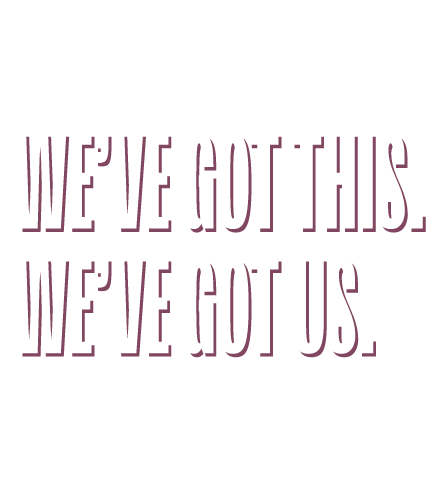Taking the Long Road Home: Discussion Guide
In PFLAG National’s film Taking the Long Road Home, young, queer, Black Panamanian filmmaker Qyidaar Foster takes us on a journey of faith and discovery as he interviews Black spiritual leaders from across the country.
Through conversation and contemplation, the film asks the question: Is there room for queerness in the Black Church?
This guide is designed to help facilitate discussion of that question and others within your PFLAG chapter, family, church or community group as you watch the film.
Starting the Discussion
-
If you were going to tell a friend about this film, what would you say?
-
Describe a moment or scene in the film that you found particularly challenging or moving. What about that scene was especially compelling for you?
-
Did anything in the film surprise you? Was anything familiar?
-
If you could ask anyone in the film a single question, whom would you ask and what would you want to know?
Personal Reflection:
Filmmaker Qiydaar Foster shares through the film that he is “taking the long road” to find and possibly return to his spiritual home in the Black Church.
-
What is the role of faith, religion, or spirituality in your life?
-
Do you follow a specific practice or have you created something else that works for you?
-
What has led you to this, i.e., what was the “road” that you took?
Rev. Naomi Washington-Leapheart opens the film by talking about how she finds a spiritual connection between her queerness and her faith.
-
How has queerness intersected with your faith, spirituality, or religious practice?
-
What are your feelings when it comes to the intersection of family, faith and identity?
Identity Reflection
Rev. Michael J. Crumpler mentioned in the film that he used to separate who he was attracted to and had sex with from who he was as a person.
-
In your opinion, do you think that sexual orientation and gender identity and who you are as a person connect?
-
How so?
Pastor Mykal Shannon shared that initially, he thought that coming out meant coming out to his mother. Because “who else did I have to tell? God knew. My mother knew.”
-
What does coming out mean to you?
-
In your experience, where has coming out been the most difficult?
Family Reflection
Multiple interviewees reflected on their relationship with their families. Some came out and were accepted, others were shunned and had insults thrown at them.
-
How does your family feel about the LGBTQ+ community? Did you feel safe coming out to them?
-
If not, where have you found your “Found Family”?
-
How can families heal damaged relationships? In your opinion, who is responsible for starting those healing conversations?
Faith Reflection
-
How does religion function as a way for people to connect? How is it used as a wedge to divide? How can it do both?
-
Multiple interviewees expressed that they felt isolated from the church because of their sexual orientation or gender identity. How do churches unintentionally alienate LGBTQ kids?
-
How is it possible for people from the same faith tradition to come to such different conclusions about topics such as LGBTQ+?
Overall Reflection:
-
Is there space in the Black Church for a queer person? Is there space for queerness?
Resources
PFLAG National Resources
-
The film: pflag.org/LongRoadHome
-
PFLAG Faith Resources: pflag.org/FaithResources
-
For Christians | While the actions of some churches have given Christians a bad name when it comes to LGBTQ+ rights, others have worked for decades fighting the good fight toward inclusion for all.
-
For Jews | Jews have contributed mightily to the fight for LGBTQ equality. In recent years, many Jewish congregations have supported same-sex marriage (and welcomed ceremonies into their temples), and in 2015, the Union for Reform Judaism officially adopted a transgender rights policy. Reform Judaism in particular has a long history of being welcoming to people who are LGBTQ.
-
For Muslims | Muslim communities have been subjected to Islamophobia, racism, and violence. In a number of ways, the contemporary Muslim experience mirrors the LGBTQ+ experience, and makes support for those whose identities intersect with both communities all the more important.
-
For Interfaith/Non-Denominational Communities | The work done between and among faiths is an important part of the movement toward full equality, since it brings together communities of faith with the LGBTQ community and their allies.
-
-
Publication: Faith in Our Families
-
Publication: be not afraid – help is on the way! straight for equality in faith communities
